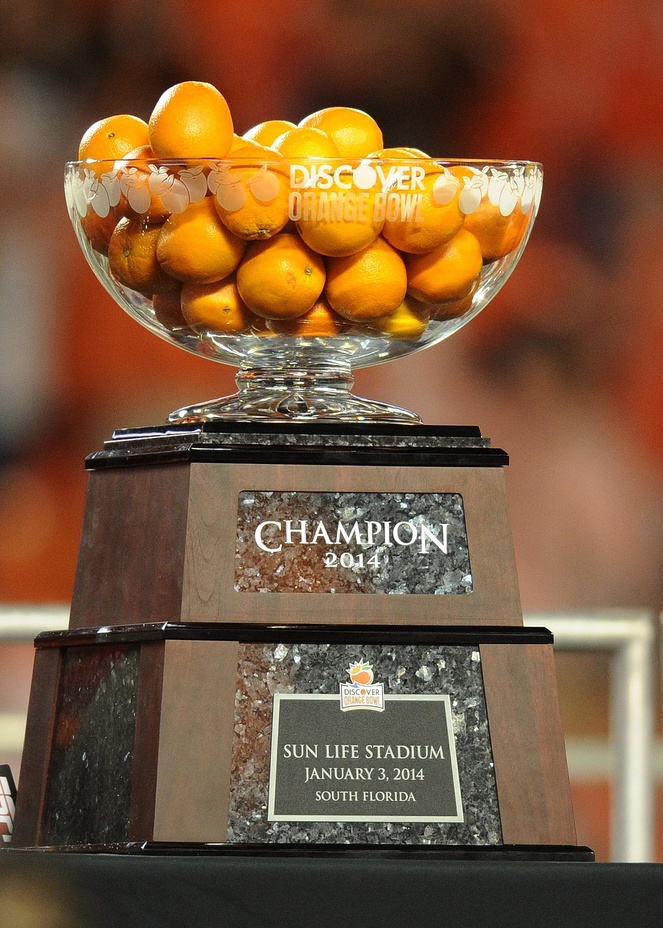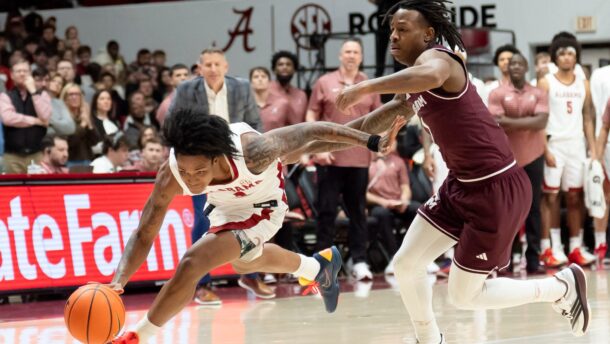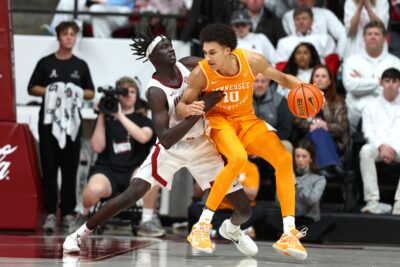
CFP semifinals: New Year’s Day, New Year’s Eve or another day?
By John Brasier
Published:
When to play a bowl game that’s more than a bowl game?
That’s the question that’s faced College Football Playoff organizers.
Should the semifinals of the College Football Playoff (the Orange Bowl and Cotton Bowl this season) be contested on New Year’s Day, the traditional day when the major bowl games, including the Orange and Cotton, have been played?
Or should they have their own separate day to emphasize their added importance and increase television dollars? Why not own both New Year’s Eve and New Year’s Day?
Bill Hancock and the CFP leadership chose the latter, slotting the semifinals on New Year’s Eve with the national championship game, almost two weeks later — this season on January 11.
It’s a better choice than playing on an oversaturated New Year’s Day. Sharing the day with other bowl games, January 1 CFP games would need to be played at night as the main events of the busy day. A section of potential viewers might become weary of college football — not SEC fans, of course — by the time the playoffs are contested.
New Year’s Day is especially tricky because no other bowls would be allowed — or want — to overlap the playoff. And a second playoff game might extend past bedtime for fans returning to work the next day.
So a separate day works best. But not New Year’s Eve, the date for eight of the next 11 CFP semifinals.
Too many college football fans — especially fans who travel by the thousands to bowls and road games in large part to have fun — prefer other pursuits on December 31.
In a Fox Sports poll, 35 percent of respondents said New Year’s Eve festivities would prevent them from watching the semifinals. The hardcores, especially fans of the competing teams, would watch faithfully. But not the fringe fans who make the difference between good and great TV ratings.
The Sugar Bowl tried New Year’s Eve from 1972-1975 in an effort to avoid competing with the Cotton and Rose on other networks before ABC and ESPN took control of the postseason.
Too many fans didn’t want to spend New Year’s Eve in front of a television. They want their parties. And they want their football, too.
So why not try the first Friday or Saturday after New Year’s Day?
Friday might require sites in separate time zones. One semifinal could kick off around 6:30 p.m. ET (not good on the West Coast) with the nightcap around 10 ET (not ideal on the East Coast).
Playing the semifinals on Saturday would be better if an arrangement could be reached to prevent direct competition between the college and NFL playoffs. That should be possible now that ESPN has joined the rotation for televising NFL wild-card games.
After Saturday semifinals, the national title game could be a fixture on Monday night, nine days later.
Traditionalists might prefer to play the semifinals (also traditional bowl games) on January 1. But the playoffs demand special treatment, not the final slots on a football-filled holiday.
Weeknights don’t work because the semifinals need to be played on the same day to ensure fairness to the winners.
Saturday makes sense. It’s when the majority of games are played in the regular season. Television ratings would be good. It’s convenient for a Monday night championship game, nine days later. And it provides a special day befitting of the playoffs.
What would happen when New Year’s Day is on a Saturday or Sunday? Move the semifinals to Friday (yeah, New Year’s Eve). Put one game in the East and kick it off at 6:30 p.m. ET, long before the ball falls in Times Square. Kick off the other at 10 p.m. ET in the West, hours before midnight local time.
Give the CFP semifinals their own night. Make it a night when the majority of fans can stay up late without worrying about work or school the next day.







